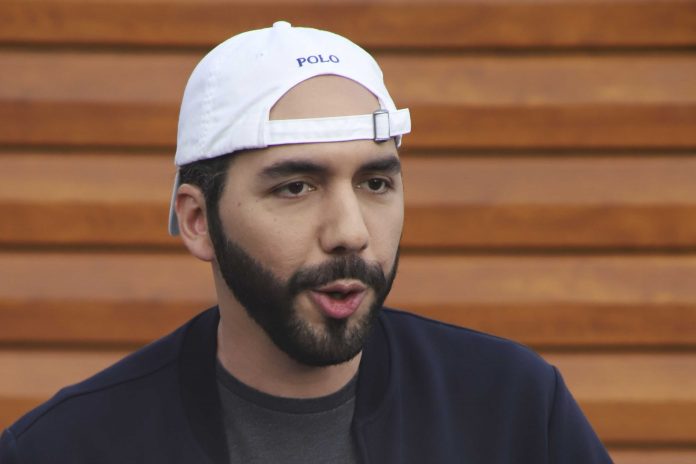
SAN SALVADOR, El Salvador (AP) — Sunday’s legislative and local elections in El Salvador are seen as a referendum on whether to break the congressional deadlock that has tied the hands of upstart populist President Nayib Bukele.
El Salvador’s established political parties — the conservative National Republican Alliance party and the leftist Farabundo Marti Liberation Front — are trying to retain their hold on congress and other key positions, which has continued since the end of the country’s civil war in 1992.
Anger with the parties that ruled El Salvador for nearly three decades swept the youthful Bukele into office in 2019, and frustration remains.
“I’ve come to vote for a change, to get rid of the corrupt ones and so our president can make a new country,” said Estela Jiménez, who arrived early at a polling place wearing a T-shirt with an “N” for Nayib.
Bukele, 39, has blamed congress for blocking his efforts in everything from controlling crime to managing the coronavirus pandemic. His New Ideas party was favored in polls to pick up congressional seats and municipal councils.
While popular with voters tired of the scandals associated with the two old-guard parties, Bukele has shown an authoritarian streak. Two years ago, Bukele sent heavily armed soldiers to surround the congress during a standoff over security funding, earning rebukes internationally.
Bukele’s party complained Sunday that the country’s electoral tribunal had not issued the ID cards needed for the party’s poll watchers to participate.
“This always happens. Now they say there are problems because the Supreme Electoral Council hasn’t allowed the New Ideas people in. I hope they solve this so I can vote, I’m not going to leave here without voting,” said Esteban Castellón, who was among the first in line to vote at a polling place in San Salvador, the capital.
A total of 5.3 million eligible voters were electing all 84 seats in the unicameral Legislative Assembly, along with 262 municipal councils. Most polling places opened at 7:00 a.m., though some were delayed by as much as an hour, and will close at 5:00 p.m. (2300 GMT).
The conservative party known as ARENA currently holds 37 of the 84 seats in congress and controls 138 of the 262 municipal councils, while the leftist FMLN holds 23 congressional seats and 64 townships.
With a majority in the Legislative Assembly, Bukele’s party would not only be able to advance the president’s agenda, but also name justices to the Supreme Court — another Bukele obstacle — as well as magistrates to the Supreme Electoral Tribunal, the attorney general, the prosecutor for the defense of human rights and others. Essentially his party could replace his loudest critics.
Eduardo Escobar, executive director of the nongovernmental organization Citizen Action, said that if New Ideas wins a congressional majority, El Salvador would lose “that brake on the exercise of power from the legislature when legality or constitutionality is exceeded, (and) that brakes any attempted abuse, any arbitrary act that the executive wants to commit.”
“It would deepen the authoritarianism of the government Bukele leads,” Escobar said, though he acknowledged that Bukele’s popularity remains at stratospheric levels and the rejection of the traditional parties is nearly as high.
New Ideas’ popularity is because “in the 30 years of government under these parties, the people have not seen improvements in their lives,” said Escobar.
In statements before polls closed, Bukele upped the stakes by calling on those who hadn’t voted yet to participate in “Operation remate,” literally, “to finish them off.”
“Ï like to call it “Operation remate,” the country has decided to end the post-war era, but there is more to do,” Bukele said. “Let’s make this an overwhelming victory.”















